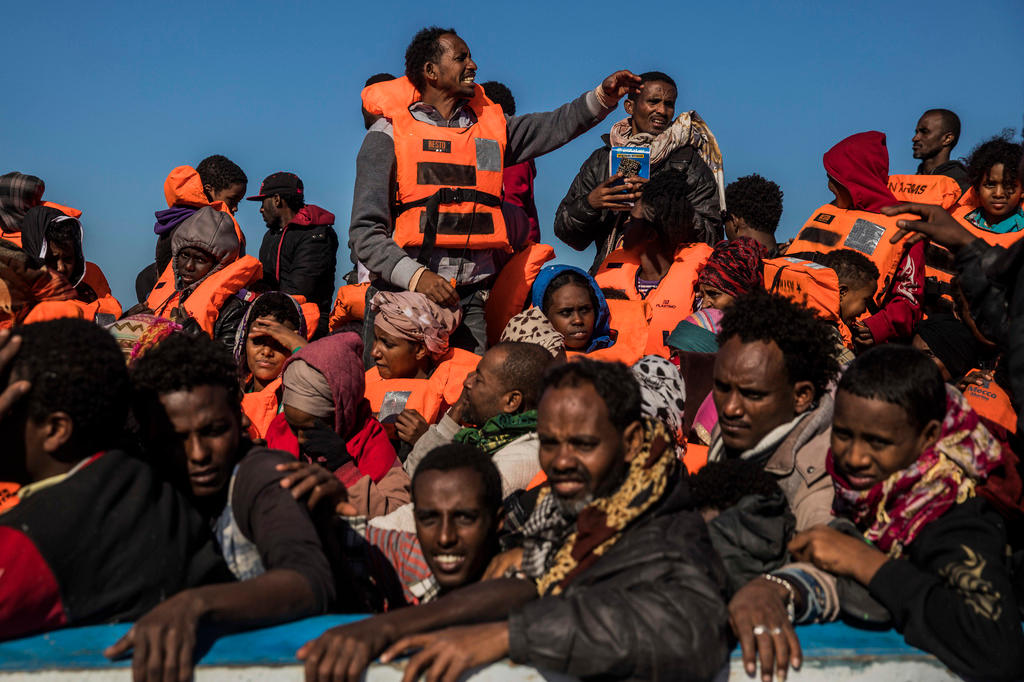
UN body blocks Switzerland from expelling Eritrean torture survivor

The United Nations Committee against Torture has ruled against the expulsion of an Eritrean national from Switzerland to Italy, saying it would deprive him of the necessary conditions for his rehabilitation as a torture survivor. The committee concluded that the expulsion would contravene the UN Convention against TortureExternal link and Other Cruel, Inhuman or Degrading Treatment or Punishment.
Rights groups on Monday expressed hope that the successful appeal of Eritrean national A.N, who was represented by the Centre Suisse pour la Défense des Droits des Migrants (CSDM), will send a message to authorities in Switzerland and Europe that human rights obligations must be met for vulnerable asylum-seekers.
“The decision provides important guidance for national decision-makers in Europe on how to apply the Dublin Regulation in a manner consistent with the fundamental rights of the individuals concerned, thus avoiding unnecessary human tragedy,” the CSDM said.
A.N requested asylum in Switzerland in September 2015. Two years and a failed appeal later he was deported to Italy in line with the European Council’s Dublin III regulation that stipulates asylum claims should be processed in the country where the asylum seeker first entered the European Union. He was expelled mid-treatment at a specialised centre for victims of war and torture at the University Hospital of Geneva.
The complaint filed to the UN Committee lays out a long litany of torture suffered by A.N. in Eritrea, where leaving the country without authorisation is a criminal offense, before reaching Switzerland via Italy.
He was first tortured in multiple detention facilities before serving a five-year sentence on charges of helping a fellow Eritrean leave the country. His own effort to leave in June 2013 led to a further arrest, during which he was reportedly kept in a snake-infested, crumbling prison made of earth, suffering further beatings before being forced to serve in the army.
The complainant returned from Italy back to Switzerland after being deported. He successfully made the case that in Italy he would be exposed to a situation amounting to “cruel, inhuman or degrading treatment and deprived an opportunity for rehabilitation” as many returnees end up on the streets, a situation he himself experienced.
In all, the Dublin procedure to decide which state is responsible for A.N.’s asylum claim lasted for three years. CSDM has similar cases pending before the UN torture committee. The Swiss section of Amnesty International has also documented dozens of cases of particularly vulnerable individuals – including torture survivors and victims of human trafficking – at risk of expulsion from Switzerland.
“To date, the Swiss asylum authorities have not taken the necessary measures to ensure that the Dublin Regulation is applied in a manner that respects human rights. Amnesty International is aware of many dramatic cases, in which evictions have been ordered, which have caused immense suffering,” Amnesty’s Muriel Trummer said in a statement.
In November 2017, Amnesty International together with dozens other organisations submitted the Dublin-CallExternal link to the Federal Council. The organisations want asylum authorities to apply the Dublin regulation in a humane manner and to give weight to vulnerable groups of asylum seekers. The coalition has documented some 60 cases that fit into the category of particularly vulnerable in Switzerland, but notes this list is not exhaustive.
Asylum seekers considered as particularly vulnerable include victims of human trafficking or risk of human trafficking, victims of torture, victims of gender based violence, single women with children, pregnant women, individuals with very poor health conditions, families risking separation due to expulsion, and families with children in school or long stay in Switzerland.

In compliance with the JTI standards
More: SWI swissinfo.ch certified by the Journalism Trust Initiative






























You can find an overview of ongoing debates with our journalists here . Please join us!
If you want to start a conversation about a topic raised in this article or want to report factual errors, email us at english@swissinfo.ch.